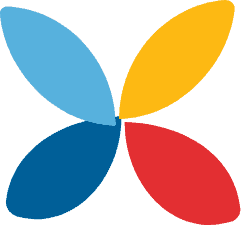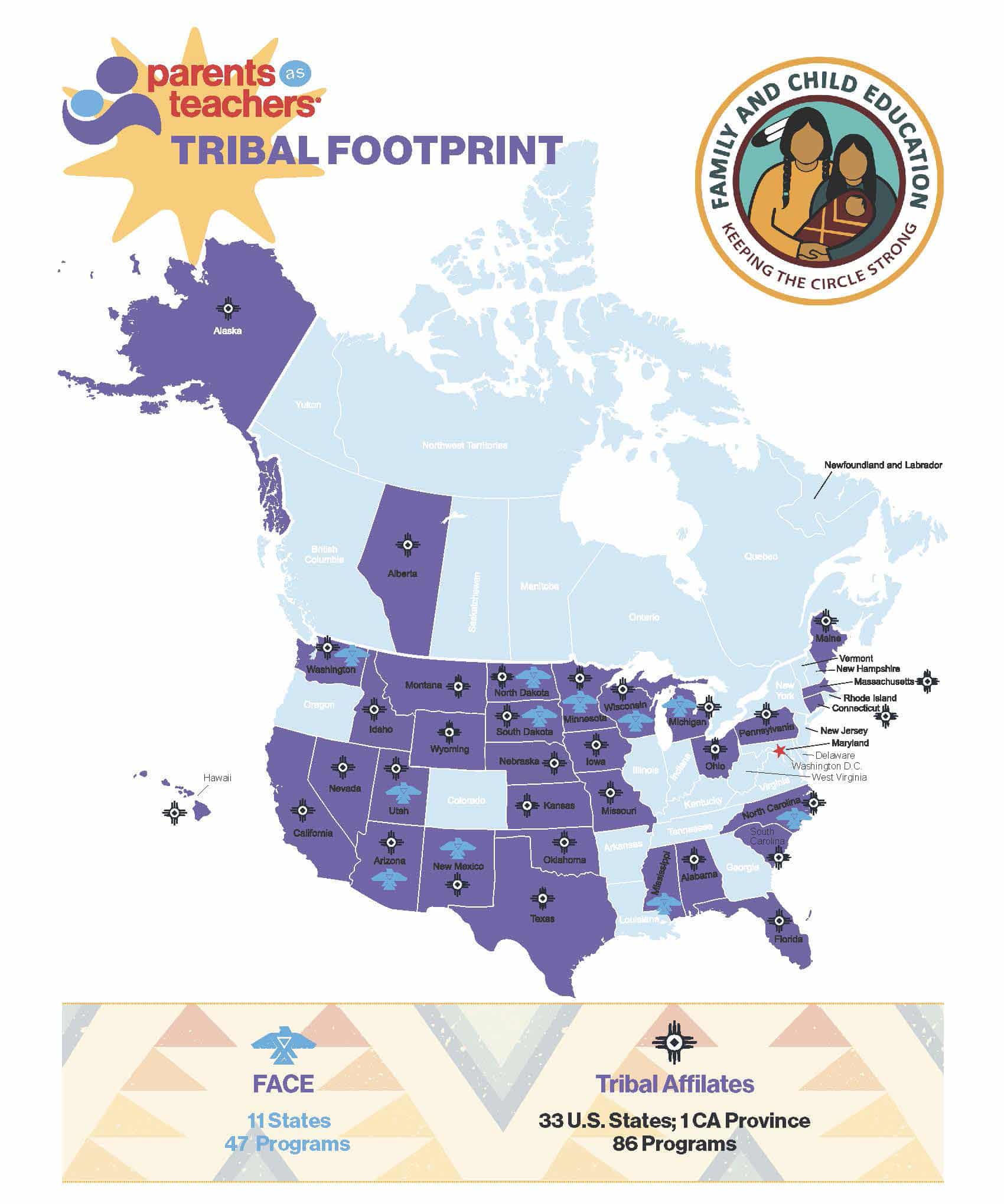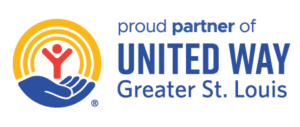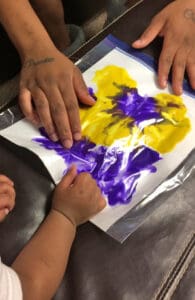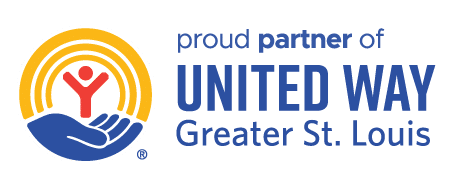Family First Prevention Services Act and Parents as Teachers FAQ
What is FFPSA?
The Family First Prevention Services Act (FFPSA), enacted as part of Public Law (P.L.) 115—123, authorized new optional title IV-E funding for time-limited prevention services for in-home parent skill-based, mental health, and substance abuse programs for children or youth who are candidates for foster care, pregnant or parenting youth in foster care, and the parents or kin caregivers of those children and youth.
Programs must implement services using evidence-based programs that meet certain criteria established by the Title IV-E Prevention Services Clearinghouse. Programs are rated as promising, supported, or well-supported. Parents as Teachers model is rated as “well-supported.” For more information, please visit Title IV-E Prevention Services Clearinghouse.
Choosing the Parents as Teachers Model
Parents as Teachers is rated as a “well-supported” model by the Title IV Prevention Services Clearinghouse. Research suggests that families enrolled in Parents as Teachers experience positive impacts such as increased parenting knowledge and are better able to manage stress. Research published in April 2018 in the international, peer-reviewed journal, Child Abuse and Neglect, found that when the Parents as Teachers evidence-based home visiting model is delivered through a scaled-up, statewide home visiting program, there was a significant decrease in cases of child maltreatment.
Parents as Teachers is the most widely replicated evidence-based home visiting model in the United States, serving families with children prenatal through kindergarten. The model enables agencies to fully engage members of the child’s circle of support as key components of the child’s development and well-being. The model is replicated by various types of organizations. Any organization that works with expectant families, teen parents, and/or families with children ages 0-5, can be a Parents as Teachers Local Implementing Agency (LIA).
HOW PARENTS AS TEACHERS PARTNERS WITH JURISDICTIONS
Parents as Teachers goes the extra mile to provide what states, Local Implementing Agencies (LIAs), and Affiliates need—from initial preparation to ongoing guidance—to reach state goals and ensure families get the support they need for child success. Parents as Teachers provides support for affiliates leads and including use of a robust data management system, Penelope, to manage FFPSA specific data.
Quick FAQ’s about PAT and FFPSA
Q: How is the PAT model used to serve families of children who are at “imminent risk?” Are families involved w/ CPS referred to PAT?
A: The PAT model is universal. It is designed to be delivered in a variety of settings to all families, prenatally through kindergarten. Parents as Teachers is a voluntary program. Families decide to participate in PAT programs for a variety of reasons, though being referred may be one of those reasons.
FFPSA does not define “imminent risk.” Each jurisdiction is responsible for defining who is at “imminent risk” and eligible to receive services under the FFPSA, therefore participation eligibility may vary within each jurisdiction. There are many programs currently serving families in the child welfare system. The role of the program and the parent educator is to support the family and work to understand the issues facing the family and how their development is impacted. It is essential that all program staff receive adequate training to support the well-being of families as well as themselves.
Q: According to FFPSA, treatment may be provided for up to 12 months. How does that align with the required timeframe of 2 years of implementation that is a part of the Parents as Teachers design?
A: Parents as Teachers requires programs to be designed to deliver at least two-years of services to families, with the realization that families may not receive services for that duration for many reasons. According to FFPSA legislation, treatment services may be provided for up to 12 months at a time beginning on the date that the individual is identified as in need of services. A Title IV-E agency may provide services for an additional 12-month period per approval. To claim Title IV-E reimbursement for each additional 12month period, the state or tribe must first determine and document in a prevention plan that the individual is eligible for such services. There is not a lifetime limit on accessing these benefits.
Q: Is it possible to deliver PAT services virtually?
A: Yes! Not only is it possible, but it is also an approved method of delivering visits that some families prefer. Virtual home visiting provides flexibility for both the family and the parent educator. There are technical assistance briefs dedicated to this topic for more information.
Q: What is the recommended caseload size?
A: Caseload sizes depend on many different factors that can make caseload sizes different for each individual affiliate, and for each parent educator within an affiliate. Parents as Teachers does not have an Essential Requirement defining caseload size. On average, a caseload size for a full-time parent educator is 20 families with a visit frequency of twice per month.
Q: Do supervisors carry a caseload?
A: Many PAT affiliate supervisors carry a small caseload of families to whom they deliver PAT services, including personal visits.
For supervisors who carry a caseload, consider the percent of time the supervisor spends on supervisory tasks. For example, if a supervisor is expected to spend 10 hours per week (0.25 FTE) on providing PAT services to families, then their caseload should be no higher than 25% of a full-time parent educator caseload. (1 FTE= 40 hours per week).
Q: In what languages are the curricula available? Is there a sample available to view?
A: The research-based Foundational Curriculum is used by parent educators to inform services delivered to families of children prenatal to age three. The Foundational Curriculum is available in English and Spanish. There are additional translations of select parent handouts in additional languages including but not limited to Arabic, French, Nepali, and Somali. Select parent educator resources are available in both English and Spanish.
In addition, select parent handouts have been modified to reflect the variety of families’ needs and preferences. There are modified reading level handouts and visually adapted parent handouts available.
Q: Is there a cost to use Visit Tracker?
A: Visit Tracker is available at no additional cost to the affiliate. Access to this data management system is included in the affiliate’s fees.
Q: How is PAT adapted to tribal needs?
A: Each Parents as Teachers tribal affiliate works with their tribal elders and leaders when starting up and implementing a program. The Parents as Teachers model is often individualized by programs by using tribal language, incorporating traditional arts crafts, storytelling and connecting families to tribal events.
Q: What is the recommended frequency of visits?
A: Families with one or fewer stressors receive at least 12 personal visits annually and families with two or more stressors receive at least 24 personal visits annually.
Q: Does PAT have a recommended transition process?
A: A family’s exit from the program should be a planned process that recognizes the family’s accomplishments, helps to ensure they stay connected to community resources, and identifies any additional resources and supports that may be helpful for the family once they are no longer enrolled.
Parent educators can develop a transition plan with the family before they exit using the PAT Transition Plan. The PAT Transition Plan should be started when exit from the PAT program is anticipated and added to as further discussion occurs, until exit.
Q: What type of professional development would PAT recommend for parent educators? Supervisors?
A: Recommended professional development includes learning relative to trauma informed care, adult learning, and reflective practices including reflective supervision.
For more information, contact Kerry Caverly, Senior Vice President/Chief Program Officer at Kerry.Caverly@Parentsasteachers.org or Tiedra Marshall, Director of Expansion at Tiedra.Marshall@Parentsasteachers.org


